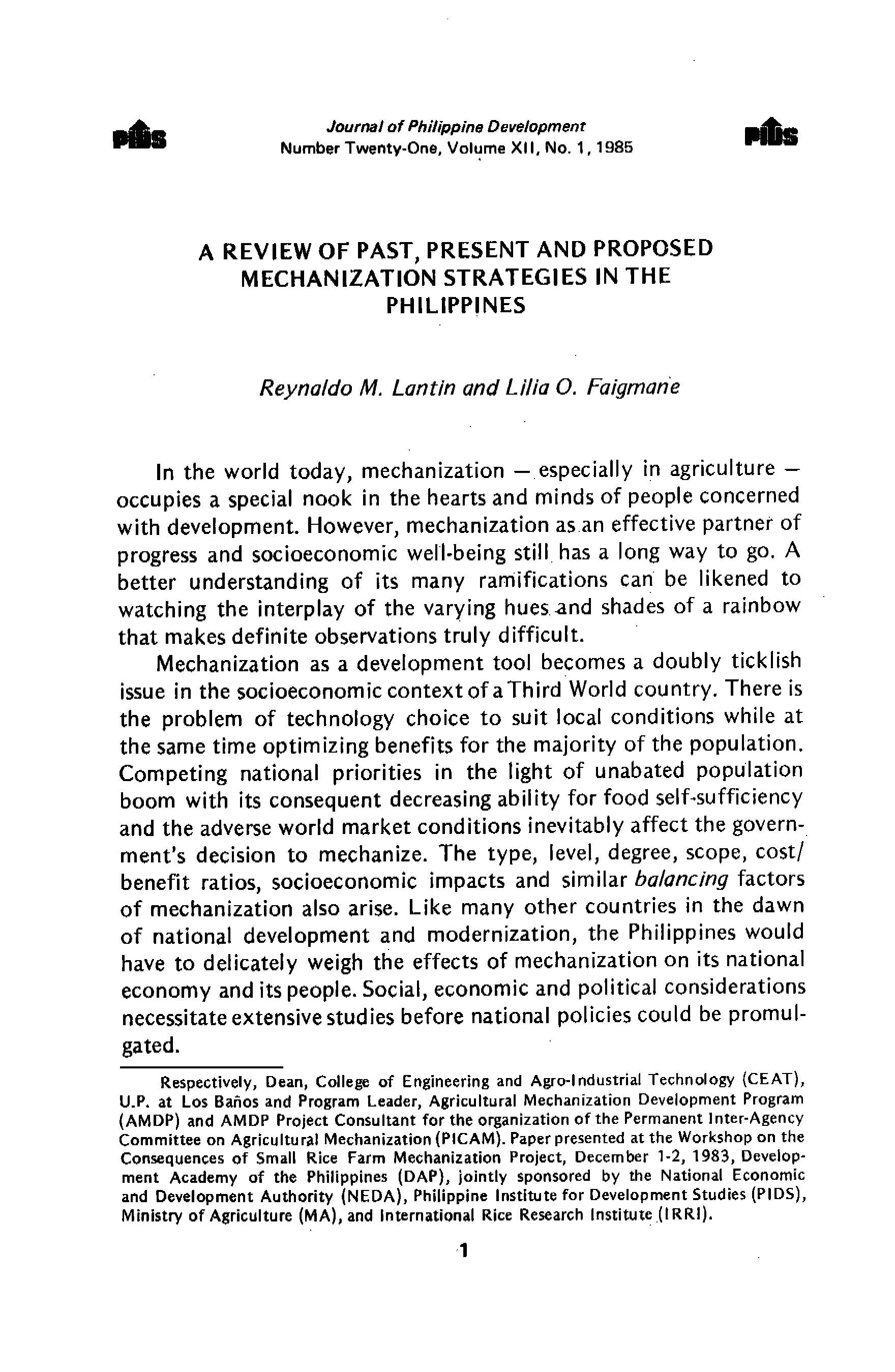Abstract
This issue presents a comprehensive analysis of small farm mechanization in the Philippines, based on findings from a seminar-workshop jointly organized by key government agencies and research institutions. The articles examine the impact of mechanization on production, employment, and income, offering insights into its benefits, challenges, and policy implications. Several studies focus on the extent of mechanization in rice farming, exploring the distinction between mechanized and nonmechanized farms and their effects on labor demand and productivity. The role of tractors and carabaos in farm operations is also analyzed, including the cost-benefit implications of tractor ownership versus contract hiring. Another study assesses the private and social profitability of threshers, evaluating how changes in fuel prices and contract costs influence their utilization. The issue further investigates how mechanization affects crop yield, input use, and cropping intensity in both rainfed and irrigated areas, with a particular focus on Nueva Ecija. A separate study examines mechanization as a factor in income variation, highlighting the need for more advanced analytical methods to assess its long-term economic impact. This volume also reviews agricultural credit programs from 1950 to 1980, revealing how demand for machinery has been largely driven by credit availability rather than market forces. An article discusses extension programs implemented by the Ministry of Agriculture and the International Rice Research Institute, identifying areas for policy improvement to better support mechanization initiatives.
Articles
SHARE
